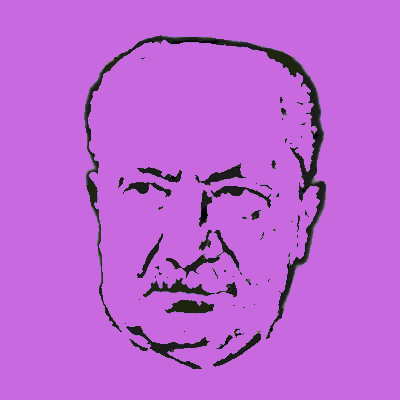“Das Ding”, the return and the ontological structure of psycoahalysis. A Lacanian understanding of Heidegger’s philosophy
Main Article Content
Abstract
The relation between Psychoanalysis and Philosophy should be understood in the more complex sense of an originary ambivalence, which constitutively returns. No matter question of the eternal return of the same, the return of the repression or the return to Freud, because in all cases it is put into play the enigmatic exercise, so characteristic of the philosophy, that discovers its objects in the discourse, in order to build a place that plays as a reflection of an specular “other”, who tends to become as vigorously as it is refused. Therefore, the language of philosophy and of psychoanalysis is crossed by a fundamental, and often latent, question, that has to do with the naive and tyrant condition of the “Subject”.
Downloads
Article Details

This work is licensed under a Creative Commons Attribution-NonCommercial-NoDerivatives 4.0 International License.
Authors retain ownership of copyright and reproduction rights.
Authors may make other independent and additional contractual arrangements for non-exclusive distribution of the version of the article published in this journal (e.g., inclusion in an institutional repository or publication in a book) as long as they clearly indicate that the work was first published in this journal.
Authors are allowed and encouraged to publish their work on the Internet (e.g. on institutional or personal websites) after the review and publication process, as it may lead to productive exchanges and to a wider and faster dissemination of the published work.
References
Assoun, P.L. (1981: Introducción a la epistemología freudiana. México: Siglo XXI, 1981.
Assoun, P.L. (1982): Freud. La filosofía y los filósofos. Barcelona: Paidós, 1982.
Derrida, J.: El concepto de verdad en Lacan. Buenos Aires: Homo Sapiens, 1977.
Elíade, M.: : El mito del eterno retorno. Buenos Aires: Emecé, 1968.
Freud, S.: La interpretación de los sueños; en Obras Completas, Vol. V. Buenos Aires: Amorrotu, 1996.
Kierkegaard, S.: La repetición. Madrid: Alianza, 2009.
Kittler,F.:“Einleitung,9.”,enlibro:AustreibungdesGeistesausdenGeisteswissenschaften. Programme des Poststrukturalismus. Paderborn – München – Wien – Zürich : Ferdinand Schöningh, 1980, pp. 7-15.
Heidegger, M.: Conferencias y artículos. Barcelona: Ediciones del Serbal, 2001 (cit. también la edición alemana: Vorträge und Aufsätze, Verlag Günther Neske, 5ª ed.).
Henry, M.: Genealogía del psicoanálisis. Madrid: ed. Síntesis, 2002.
Lacan, J.: Escritos, en Obras escogidas I, Barcelona: Siglo XXI – RBA, 2006; (cit. también la edición francesa: Écrits. Éditions du Seuil, Paris 1996).
Massotta, O.: Introducción a la lectura de Jacques Lacan. Buenos Aires: Proteo, 1970.
Nietzsche: Consideraciones intempestivas. Madrid: Alianza, 2000 (cit. en alemán: Unzeitgemaeße Betrachtungen. Berlín: De Gruyter, 1999).
Parra, C., Tabakián, E.: Lacan y Heidegger, una conversación fundamental: Dimensión trágica de la ética. Buenos Aires: Paradiso, 1998.
Ricoeur, P.: Freud: una interpretación de la cultura. México: Siglo XXI, 1970.
Roudinesco, É.: Jacques Lacan. Esbozo de una vida, historia de un sistema de pensamiento. Barcelona: Anagrama, 1995.
Schellenbacher, M.:“Sigmund Freud und Franz Brentano“, en revista eJournal Philosophie der Psychologie, marzo de 2011.
Vetter, H., Nagl, L. (ed.): Die Philosophen und Freud. Wien – München: R. Oldenbourg Verlag, 1988.

